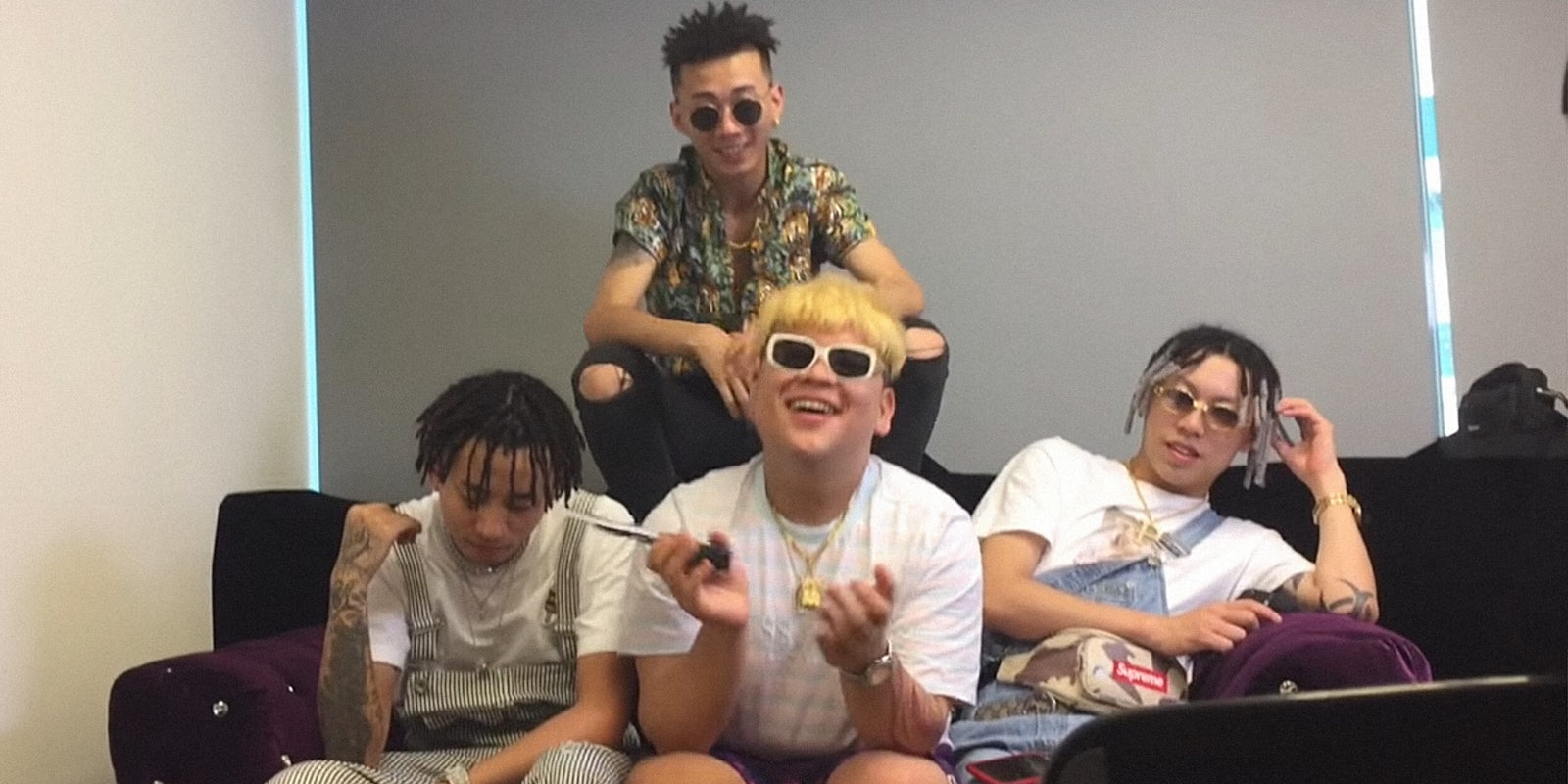In the summer of 1973, a young DJ Kool Herc was spinning at a birthday party in the Bronx, New York. Hip-hop soon sparked from sweaty dance floors, forged by kids looking to have fun amid an economically strained neighborhood. A similar struggle is happening in China, where state censorship is giving rise to a new big bang in hip-hop.
China is one of the top 10 most strictly censored countries in the world, right below Iran, according to USA Today. Yet the internet has swept the anthems of the outsiders past the online blockade known as the “Great Firewall.”
Brought to China in the early ‘90s through clubs playing imported records, the genre remained mostly underground for decades. As vinyl turned into SoundCloud, and mixtape parties happened via QQ (a Chinese social media network that functions like Twitter and YouTube), hip-hop made its slow climb over the Great Wall. Asian rappers like Keith Ape and the Higher Brothers made waves overseas, and an American Idol-style rap competition called The Rap of China sprang up on a state-sponsored channel this year. Online YouTube channels like 88rising and Zhong.tv gather and promote Asian artists, showcasing evolving styles internationally.
The Chinese government keeps a tight rein on art and music as possible conduits to subversive thought. All radio and television channels are state owned and monitored, leaving the web the only space for uncensored media. Even on the internet, many American search engines and streaming services such as Google are blocked by a government firewall. Popular culture creeps in on occasion, as underground Western music even made it onto state-run airwaves this summer.
The Rap of China introduced hip-hop to a mainstream audience, an instant reality TV hit upon its June debut. It presents a panel of judges who are mostly pop stars dressed in chains and Air Jordan sneakers. There’s only one actual rapper on the panel, MC Hotdog, and they make bad decisions such as praising one girl’s faulty Iggy Azalea cover while eliminating a respected rapper for rapping in English.
Outside the show, much of hip-hop in China still remains independent, as rappers still struggle to make money off their music. The rigid Chinese education system leaves little space for creative endeavors or youthful rebellion, but thanks to the internet, kids can access hip-hop culture, create, and distribute music at their discretion and in the privacy of their homes. Independent hip-hop provides an outlet for both creativity and discontent, and a diverse scene.
In the north, Beijing rappers tend toward a more traditional boom-bap New York sound, as repped by Sean zh in “Born 90.”
The gritty snares and slurred delivery of the American South translated to a spicy Chengdu style, where rappers like Gai perform in their own Southern Chinese dialects. Chengdu rappers the Higher Brothers made waves this summer with their latest album Black Cab, which features South Korean breakout rapper Keith Ape. Occasionally labeled the “Chinese Migos,” the Higher Brothers rap in both English and their native Chengdu dialect (a southern Chinese language) over trap beats, with playful anthems like “Made in China” and “7-11.”
In far west China, a Turkic ethnic minority called the Uyghurs rap in their native tongue. Uyghur rappers Six City of the Xinjiang region use hip-hop to promote ethnic pride and preserve their language, as more Han Chinese (the ethnic majority of China) flood into the region every day.
https://www.youtube.com/watch?v=-njVmChOHKE
Despite the recent commercial packaging of Chinese hip-hop on shows like Rap of China, much of it maintains an undercurrent of defiance. Rampant corruption and a growing class divide stir discontent not otherwise expressed in the saccharine pop songs played on most state radio stations.
“China is full of these low-class, dirty millionaires, and they live the same way. They don’t give a shit. They might have people killed, or a bunch of their workers might die on the job, but they’re still rich. Thirty workers die? No problem. They just cover up the news about it. To me, China is one big trap,” independent rapper Fat Shady told the Huffington Post in 2015.
Shady also recently dropped a controversial track spurning foreigners, in which he says they “couldn’t make it in their own country” and that “girls that hang around them are stupid cunts.” Shady’s animosity was supported on Chinese forum Weibo, where fans applauded his nationalist and racist tirade against foreigners for disrespecting their women and culture. It was an ugly, viral flare that shows what can happen when suppressed anger manifests online.
The track was not blacklisted or held under government scrutiny (perhaps because there were more creative swear words than political references), but the Chinese Communist Party tends to put a damper on explicit lyrics.
Anti-authoritarian music is also the target of their frequent internet crackdowns. In 2015 President Xi Jinping and the Ministry of Culture blacklisted more than 120 songs, 50 of which were hip-hop, as part of a campaign to clean up art that trumpets “obscenity, violence, crime or harmed social morality.”
Modern classics such as hip-hop band In3’s “Beijing Evening News,” which touches on subjects like bar brawls, drunk driving, and government corruption, made the top of the banned list. The band had 17 songs censored and members were held in custody for five days.
Public Enemy tweaked a Beastie Boys lyric back in ‘88: “Party for your right to fight.” The breakthrough of hip-hop culture in China flips the same switch. Although their content draws from humor and swagger, to wear your hair in a different way is already deeply subversive in a country with a history of giving trouble to those who stand out. The cultural coming of age is being streamed, and it can’t be contained.


